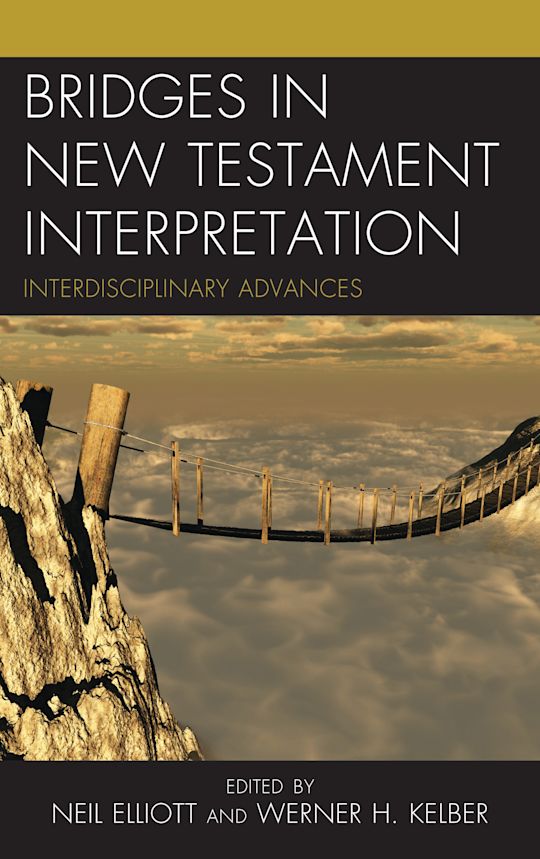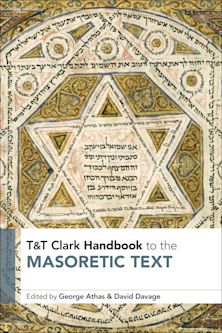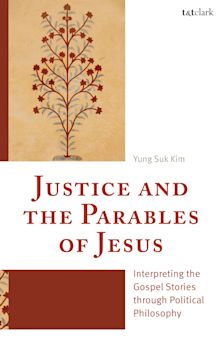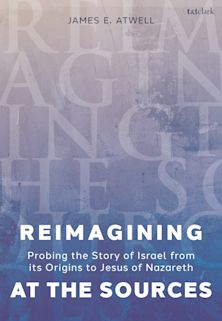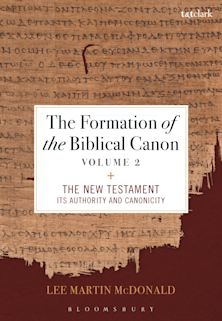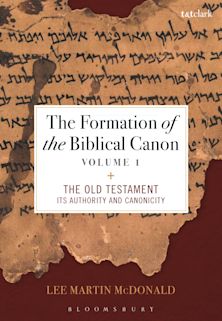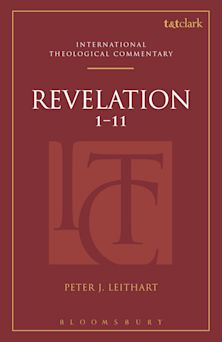- Home
- ACADEMIC
- Biblical Studies
- Biblical Interpretation
- Bridges in New Testament Interpretation
Bridges in New Testament Interpretation
Interdisciplinary Advances
Neil Elliott (Anthology Editor) , Werner H. Kelber (Anthology Editor) , Noelle Damico (Contributor) , Neil Elliott (Contributor) , James R. Harrison (Contributor) , Holly E. Hearon (Contributor) , Werner H. Kelber (Contributor) , Alan Kenneth Kirk (Contributor) , Rafael Rodríguez (Contributor) , Gerd Theissen (Contributor) , Antoinette Clark Wire (Contributor)
Bridges in New Testament Interpretation
Interdisciplinary Advances
Neil Elliott (Anthology Editor) , Werner H. Kelber (Anthology Editor) , Noelle Damico (Contributor) , Neil Elliott (Contributor) , James R. Harrison (Contributor) , Holly E. Hearon (Contributor) , Werner H. Kelber (Contributor) , Alan Kenneth Kirk (Contributor) , Rafael Rodríguez (Contributor) , Gerd Theissen (Contributor) , Antoinette Clark Wire (Contributor)
You must sign in to add this item to your wishlist. Please sign in or create an account
Description
The field of New Testament studies often appears splintered into widely different specializations and narrowly defined research projects. Nevertheless, some of the most important insights have come about when curious men and women have defied disciplinary boundaries and drawn on other fields of knowledge in order to gain a more adequate view of history. The essays in Bridges in New Testament Interpretation offer surveys of the current scholarly discussion in areas of New Testament and Christian origins where cross-disciplinary fertilization has been decisive and describe the role that interdisciplinary 'bridges,' especially as led by Richard A. Horsley, have played. Topics include the socioeconomic history of Roman Palestine; the historical Jesus in political and media contexts; communication media, orality, and social context in the study of Q; the Gospels in the context of oral culture, performance, and social memory; reading Paul’s letters in the context of Roman imperial culture; the narrativization of early Christianity in relation to the ancient media environment; and the role of power in shaping our understanding of history, as evident in 'people’s history;' the historical agency of subordinate classes; and the role of public and 'hidden transcripts' in contexts shaped by power relations. Essays also address the role of the interpreter as engaged with the social and political concerns of our time. The sum is even greater than the parts, presenting a powerful argument for the value of further exploration across interdisciplinary bridges.
Table of Contents
Neil Elliott
Women in the Early Christian Stories: Serving and Served, Rural and Urban, in Occupied and Pacified ProvincesAntoinette Clark Wire
The Jesus Movement in Historical Context: Attempt at a Comparative Social HistoryGerd Theissen
Who Are the Q Scribes? Questioning the Village Scribes HypothesisAlan Kenneth Kirk
Betwixt Past and Present: Jesus and John in Tradition, Text, and HistoryRafael Rodríguez
The Apostle Paul and the Spiral of Roman ViolenceJames R. Harrison
Minding the Gaps: Reflecting on the Fantasy of People’s History in the Study of Christian OriginsDavina C. Lopez
Communication in Context: Jesus Movements and the Construction of Meaning in the Media World of the First CenturyHolly E. Hearon
When Bridges Fail Us: Studying Economic Realities in the New Testament WorldNeil Elliott
The Intellectual and Social Impact of an Engaged Scholar: Richard A. Horsley’s LegacyNoelle Damico
Taking the Measure of Richard A. Horsley’s Scholarly AchievementWerner H. Kelber
Product details
| Published | 30 Apr 2018 |
|---|---|
| Format | Ebook (Epub & Mobi) |
| Edition | 1st |
| Extent | 330 |
| ISBN | 9781978702172 |
| Imprint | Fortress Academic |
| Illustrations | 7 b/w illustrations |
| Publisher | Bloomsbury Publishing |
About the contributors
Reviews
-
These essays are more than a simple celebration and synthesis of Horsley’s work. They invite readers to think further about methodological issues in NT studies, to extend boundaries beyond the historical-critical investigation of the biblical texts and to fully participate in unfolding the tension between text and history.
Journal for the Study of the New Testament
-
Biblical scholars, pastor-theologians, and laity will find this book on New Testament scholarship a breath of fresh air. Honestly, I have a number of books on the New Testament, and I have yet to find the interesting array of such topics as presented here. Did the contributors advance the research agenda and methodologies proposed by the Richard A. Horsley? It is safe to say each contributor affirmed Horsley’s agenda that was stated at the outset.
Reading Religion
-
This volume is altogether welcome. For many years now Richard Horsley has been engaged in the task of political criticism. This he has always done with one eye on the ancient world and the other on the modern and postmodern worlds. The volume not only sets such work wonderfully in context but also advances, in its own right, many of its various prongs. I cannot think of a better tribute to his life and his work. For political criticism, moreover, this work is simply indispensable.
Fernando F. Segovia, Oberlin Graduate Professor of New Testament and Early Christianity, Vanderbilt University
-
The wide ranging intellect, focused passion, and keen imagination that characterize Richard A. Horsley’s scholarship generate and energize the authors of these essays. Conceptualized and introduced with Neil Elliott’s methodological insight and care, this volume advances the conversation about biblical studies that is self-aware and constructive. Activists and contemplatives, historians and theologians, scholars and preachers will find much to inspire and motivate them in this collection.
Cynthia Briggs Kittredge, Dean, Seminary of the Southwest
-
The essays in this volume engage and advance Richard Horsley’s interdisciplinary approach to a political exegesis of the New Testament on a wide range of topics, including people’s history, social memory, economics, media, conflict, and power, to name a few. It is a fitting tribute to an activist scholar who has changed the landscape of New Testament studies by provoking a conversation about the social and political history and significance of the Jesus and Pauline tradition in ways that has invited the contributions of others.
Raymond Pickett, Pacific Lutheran Theological Seminary









